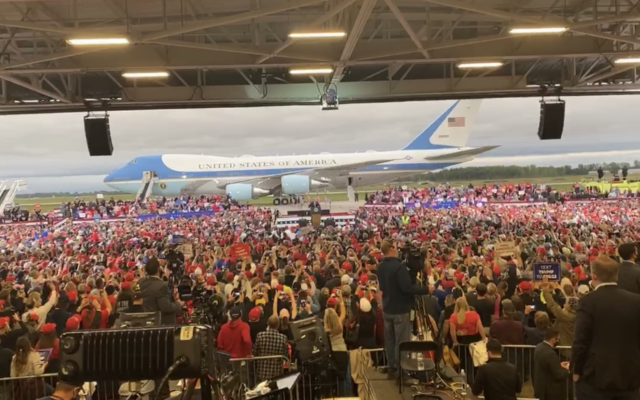Angelina Jolie bows out as envoy for U.N. refugee agency

United Nations – Actress Angelina Jolie and the United Nations refugee agency are parting ways after more than two decades, they announced Friday.
Jolie has been the U.N.’s highest profile goodwill ambassador and special envoy since 2001. She indicated Friday that she is opting to work with local organizations instead of with the world body.
“After 20 years working within the U.N. system I feel it is time for me to work differently, engaging directly with refugees and local organizations, and supporting their advocacy for solutions,” Jolie said in a joint statement with the U.N.
Filippo Grandi, high commissioner for the refugee agency, praised Jolie’s dedication to her work. which has taken her on over five dozen trips to countries like Lebanon, Syria, Yemen, Afghanistan, Haiti, and most recently, Ukraine.
“Angelina Jolie has been an important humanitarian partner of UNHCR for very long. We are grateful for her decades of service, her commitment, and the difference she has made for refugees and people forced to flee,” Grandi said.
U.N. Under-Secretary-General Melissa Fleming, who was the communications director at the refugee agency for many years and worked with Jolie, tweeted Friday that the actress “opened public eyes, minds and hearts.”
The move comes after Jolie has written of her frustration with the U.N.’s inability to bring peace to a growing number of countries in conflict, a view she expressed at the General Assembly in 2019.
“We live at a time of blatant disregard for the laws of war that forbid attacks on civilians … We seem incapable of upholding minimum standards of humanity in many parts of the world,” she said in the address.
After Russia’s invasion of Ukraine, she wrote in a piece for Time magazine in June: “One in every six children worldwide—426 million—lives in a conflict zone.” And yet, she continued, “Because of the way the U.N. was set up, it is tipped towards the interests and voice of powerful nations at the expense of those people suffering the most from conflict and persecution whose rights and lives are not treated equally.”
And she took aim at the 15-nation Security Council’s inaction last month, writing in The Guardian, “We run into some security council members abusing their veto power.”
Richard Gowan, U.N. director for the International Crisis Group think-tank, told CBS News Friday that Jolie “has demonstrated a remarkable amount of patience with the U.N.”
“She has been one of its most effective celebrity advocates,” Gowan said. “But we are in an era when political and economic forces are going to make the U.N.’s humanitarian work ever more difficult.
“I suspect that celebrities are going to be looking for alternative platforms to do good works, like international NGOs, rather than the U.N. in future, as multilateral diplomacy becomes ever more complicated,” he added.
During a June trip to a refugee camp in Burkina Faso on World Refugee Day, Jolie told officials and refugees, “I have never been as worried about the state of displacement globally as I am today.”
“The way we as an international community try to address conflict and insecurity is broken,” she said.
Jolie’s departure as a U.N. spokesperson and envoy on these issues comes at a time when the agency is struggling to deal with an increase in human rights violations around the world.
“At a time when the world is facing complex, multi-faceted, and interconnected crises, she (Jolie) plans to engage with a wider range of actors on a broader set of humanitarian issues as well as work more directly with local organizations,” the U.N. wrote in its statement Friday.



